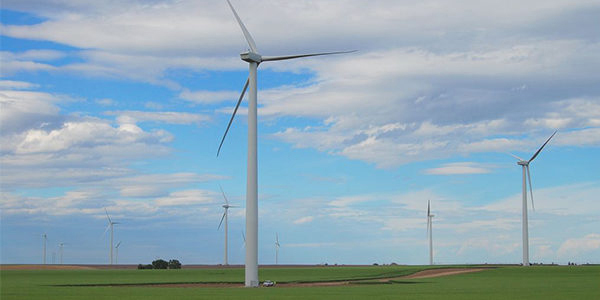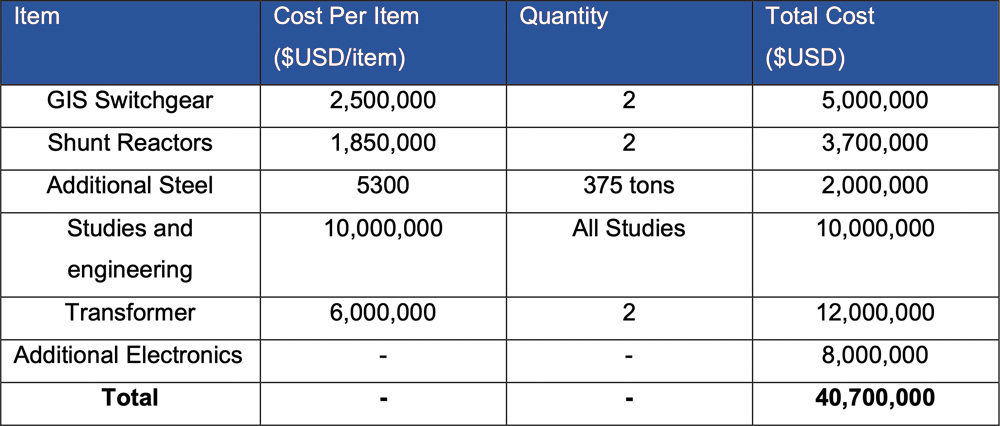MISO is close to proposing its first cycle of projects under its long-range transmission effort and has signaled that a massive transmission line touching four states shows promise.
During a special stakeholder workshop Friday, the RTO promised more specifics on project proposals next month.
“This work is complicated, but we’re starting to see some clarity around our first tranche of projects,” MISO’s Jarred Miland said.
Miland said staff has completed much of the reliability analysis on prospective projects, with economic analysis to continue into February. Transmission planners will have the projects’ business justifications solidified sometime in March, he said.
By April, discussions on the long-range projects will be handed over to the Planning Advisory Committee, Miland said. The RTO plans to have its board of directors vote on approval of the first cycle of projects in mid-June. (See MISO Postpones 1st Cycle of Long-range Projects.)
The first group of projects are limited to the Midwest and based upon MISO’s most conservative 20-year transmission planning future, which contemplates the three futures’ least amount of renewable penetration, fossil fuel retirements and electrification.
MISO is optimistic that a vast, curved 345-kV project would cross through Iowa, Illinois, Indiana and Michigan. The RTO said the line resolves “multiple, severe” steady state issues from the first planning future.
Staff said while the project appears to be a standalone corridor on a map, it ties into MISO’s existing 345-kV system at several points.
“It’s not one long line. It’s more of a reinforcement of the existing system; it’s not just a point A to point B,” MISO expansion planning adviser Matt Tackett said.
Tackett also said a 345-kV rating is the best call for the massive project. “While we intend to look into higher voltage, 765-kV lines in the future … we need a strong underlying 345-kV system to build on,” he said.
Study continues on a handful of smaller, 345-kV projects that are spread across central Iowa, northern Missouri, the Dakotas and western Minnesota, and Minnesota into Wisconsin. MISO is interested in constructing a path between South Dakota’s existing 345-kV infrastructure and a 345-kV line in southwest Minnesota built under its CapX2020 initiative.
While MISO is not prepared to issue cost estimates, some stakeholders said the first cycle of projects could reach $10 billion.
MISO Senior Engineer James Slegers said though the new lines may be near existing transmission and might be able to share right of way, staff is not going to propose the removal or replacement of existing lines under the long-range plan.
Staff also said they’re monitoring and sharing results with the MISO-SPP team working on the RTOs’ Joint Targeted Interconnection Queue (JTIQ) searching for interregional transmission projects to boost generation interconnections.
Julie Fedorchak, chair of North Dakota Public Service Commission, has pointed out that some projects under consideration in the plan are included among the joint study’s possible transmission solutions.
“That bothers me because they obviously have benefits to SPP if they’re on the JTIQ map,” Fedorchak said during a Jan. 13 Organization of MISO States meeting.
Aubrey Johnson, the RTO’s executive director of system planning, said that if similar solutions are showing up in both the long-range and JTIQ studies, it shows how desperately needed the projects are.
“We are internally discussing how to handle that overlap,” Johnson said. “Ultimately, these are all projects that are wholly located within MISO, so we think it’s appropriate to include them in the long-range plan.”
Customized Energy Solutions’ Ginger Hodge said she was concerned about a “lost opportunity” to share costs if the projects are shown to benefit SPP.
“I just really encourage MISO to think about that,” she said.
Stakeholders also asked that MISO’s models contemplate that the Cardinal-Hickory Creek line never gets energized. A federal judge recently ruled that the line couldn’t cut through protected wildlife habitat in Wisconsin. (See Federal Judge: Tx Line Can’t Cross Wildlife Refuge.)
The Cardinal-Hickory Creek line is the last of MISO’s $6.7 billion, 17-project Multi-Value Project portfolio approved in 2011; MISO has long assumed the project will become part of its system.
Some stakeholders asked whether the grid operator would increase its renewables projections before it proposes long-range projects based on the second and third future scenarios. MISO developed its current set of planning futures in 2020, and some stakeholders said that the speed of renewable installations can mean transmission projections quickly become outdated.
Johnson said he didn’t see a need for that as MISO’s three planning futures account for anywhere from 130 to 330 GW of resource additions, mostly from renewable sources.
“I think we’ve got it covered,” he said.


